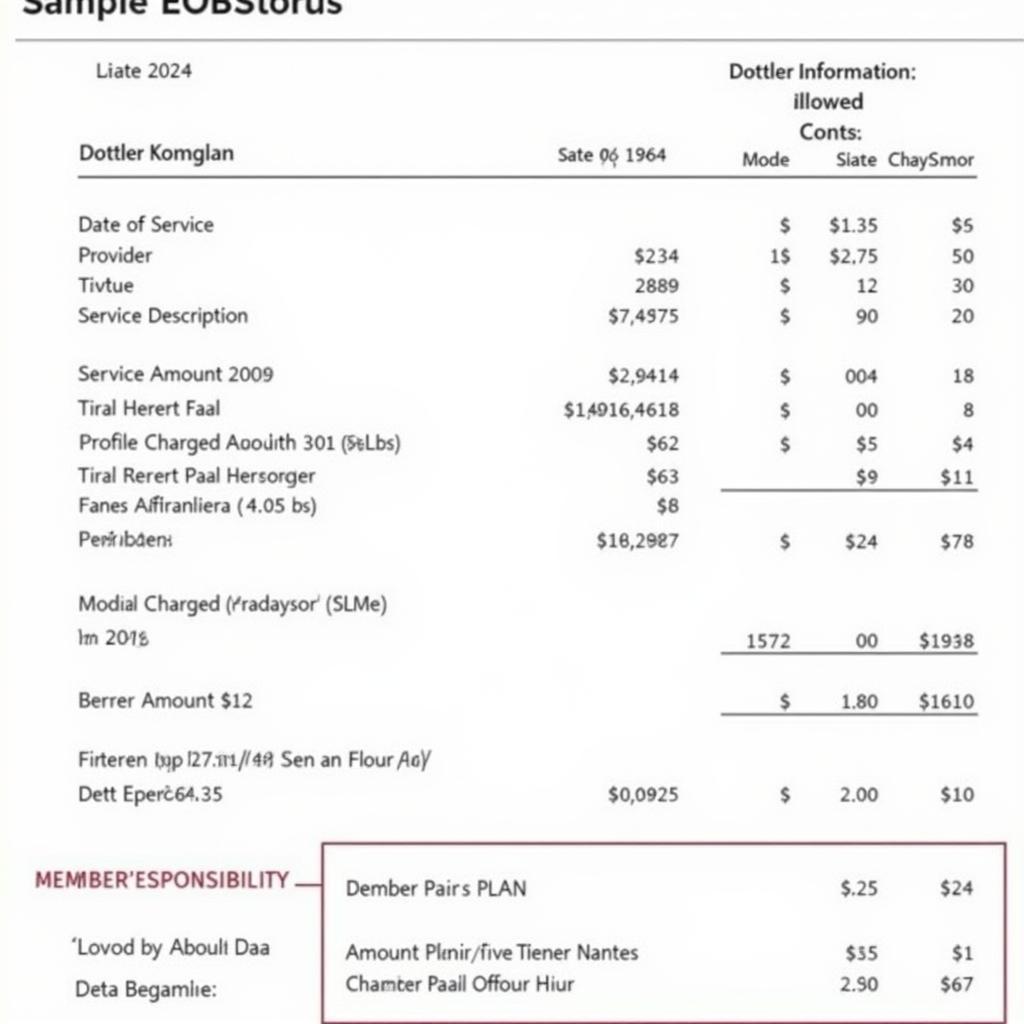The ASEAN Framework Agreement on Services (Asean Afas) represents a significant step towards economic integration within the ASEAN region. It aims to liberalize the services sector, facilitating greater trade and investment flows among member states. This comprehensive guide explores the key aspects of ASEAN AFAS, its impact on the region, and its future prospects.
What is ASEAN AFAS and Why is it Important?
ASEAN AFAS is a legally binding agreement among the ten ASEAN member states that seeks to progressively reduce restrictions on trade in services. This agreement covers a wide range of service sectors, from finance and tourism to telecommunications and professional services. The importance of ASEAN AFAS lies in its potential to boost economic growth, create jobs, and enhance competitiveness within the ASEAN region. By fostering a more open and integrated services market, ASEAN AFAS aims to attract foreign investment, promote innovation, and improve the quality of services offered within the region.
Key Features of the ASEAN AFAS Framework
The ASEAN AFAS framework operates on several core principles, including transparency, non-discrimination, and progressive liberalization. Transparency ensures that regulations and procedures related to trade in services are clear and readily available to all stakeholders. Non-discrimination prevents member states from favoring their own service providers over those from other ASEAN countries. Progressive liberalization means that restrictions on trade in services are gradually reduced over time, allowing businesses to adapt to the changing landscape. These principles underpin the agreement and contribute to its effectiveness in promoting a more open and integrated services market within ASEAN. The framework also incorporates mechanisms for dispute settlement and mutual recognition of professional qualifications, further facilitating cross-border trade in services.
afas asean framework agreement services
Benefits of ASEAN AFAS for Businesses and Consumers
ASEAN AFAS offers numerous benefits for both businesses and consumers. For businesses, the agreement opens up new markets and opportunities for expansion within the ASEAN region. It also promotes greater competition, leading to increased efficiency and innovation. Consumers, on the other hand, benefit from greater choice, higher quality services, and potentially lower prices. The increased competition encourages service providers to improve their offerings to attract and retain customers.
The Impact of ASEAN AFAS on the ASEAN Economic Community
ASEAN AFAS plays a crucial role in the development of the ASEAN Economic Community (AEC). The AEC aims to create a single market and production base for goods, services, investment, and skilled labor within ASEAN. ASEAN AFAS contributes to this vision by removing barriers to trade in services, facilitating the free flow of skilled professionals, and encouraging greater regional economic integration. By promoting the integration of the services sector, ASEAN AFAS helps to create a more dynamic and competitive ASEAN economy.
Challenges and Opportunities in Implementing ASEAN AFAS
While ASEAN AFAS offers significant potential, its implementation faces certain challenges. These include varying levels of development among member states, differing regulatory frameworks, and the need for capacity building in certain areas. However, these challenges also present opportunities for collaboration and mutual learning. By working together, ASEAN member states can overcome these obstacles and fully realize the benefits of ASEAN AFAS. This collaborative approach can strengthen regional cooperation and pave the way for further economic integration.
The Future of ASEAN AFAS
The future of ASEAN AFAS lies in further deepening integration and expanding the scope of the agreement. Ongoing negotiations aim to address remaining restrictions and streamline regulations to create a truly seamless services market within ASEAN. This includes initiatives to enhance regulatory transparency, promote mutual recognition of professional qualifications, and facilitate cross-border movement of service providers. By continuing to work towards these goals, ASEAN can ensure that ASEAN AFAS remains a driving force for economic growth and regional integration.
“ASEAN AFAS is a crucial component of ASEAN’s economic integration efforts. By progressively liberalizing the services sector, the agreement creates new opportunities for businesses and consumers alike, contributing to a more dynamic and prosperous ASEAN region.” – Dr. Maria Santos, Economist specializing in Southeast Asian trade.
Conclusion
ASEAN AFAS represents a critical step in the journey towards greater economic integration within the ASEAN region. By reducing barriers to trade in services, ASEAN AFAS fosters greater competition, promotes innovation, and benefits both businesses and consumers. While challenges remain, the future of ASEAN AFAS is promising, with ongoing efforts to further deepen integration and expand the scope of the agreement. The continued implementation of ASEAN AFAS is essential for building a more integrated, competitive, and prosperous ASEAN economy.
FAQs
- What services are covered under ASEAN AFAS? ASEAN AFAS covers a wide range of service sectors, including finance, tourism, telecommunications, and professional services.
- How does ASEAN AFAS benefit consumers? Consumers benefit from increased choice, improved quality of services, and potentially lower prices due to greater competition.
- What are the challenges in implementing ASEAN AFAS? Challenges include differing levels of development among member states and varying regulatory frameworks.
- What is the future of ASEAN AFAS? The future involves deepening integration and expanding the scope of the agreement.
- How does ASEAN AFAS contribute to the AEC? ASEAN AFAS promotes regional economic integration by removing barriers to trade in services.
- What are the core principles of ASEAN AFAS? Transparency, non-discrimination, and progressive liberalization are the core principles.
- How does ASEAN AFAS impact foreign investment? It attracts foreign investment by fostering a more open and integrated services market.
More Questions You Might Have
- What specific sectors have seen the greatest impact from ASEAN AFAS?
- How are disputes related to ASEAN AFAS resolved?
- What are the mechanisms for mutual recognition of professional qualifications under ASEAN AFAS?
Need more information? Contact us at Phone: 0369020373, Email: [email protected] or visit us at Thôn Ngọc Liễn, Hiệp Hòa, Bắc Giang, Việt Nam. We have a 24/7 customer service team ready to assist you.

